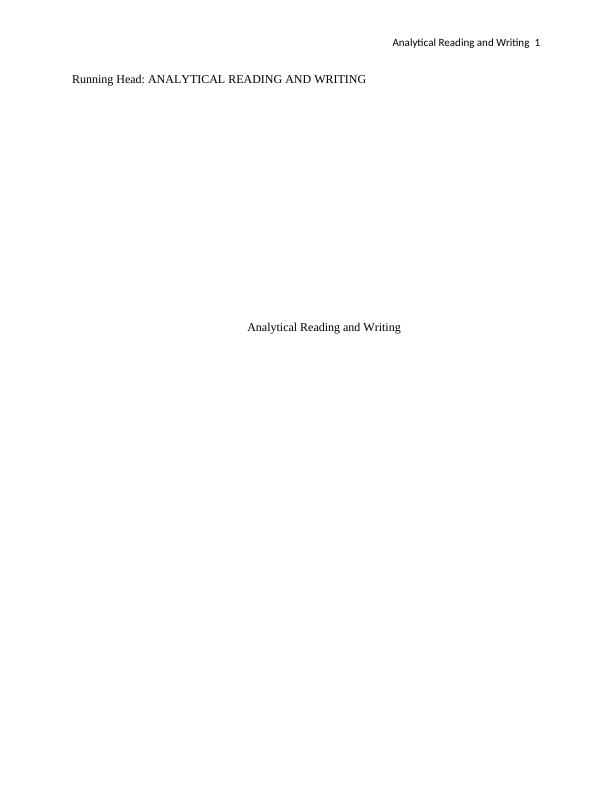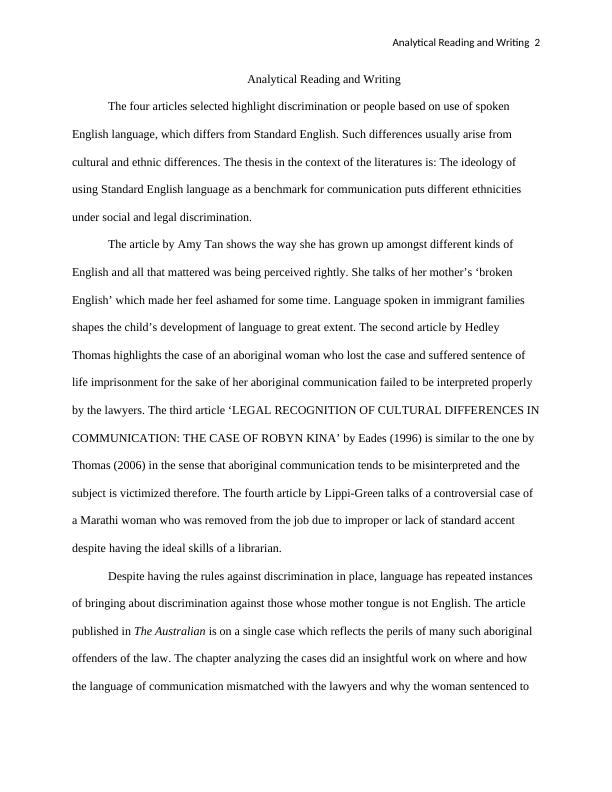Discrimination Based on Spoken English Language
The article discusses the discrimination faced by individuals based on their accent and language in the courts.
4 Pages808 Words324 Views
Added on 2023-04-21
About This Document
The articles selected highlight discrimination based on spoken English language and its impact on different ethnicities. The thesis is that using Standard English as a benchmark for communication leads to social and legal discrimination. The cases discussed include misinterpretation of aboriginal communication, loss of job due to lack of standard accent, and the effects of language discrimination on self-esteem and dignity. The articles emphasize the need to recognize cultural differences in communication and challenge the perception of Standard English as the only acceptable form of language.
Discrimination Based on Spoken English Language
The article discusses the discrimination faced by individuals based on their accent and language in the courts.
Added on 2023-04-21
ShareRelated Documents
End of preview
Want to access all the pages? Upload your documents or become a member.
Experience with linguicism
|4
|728
|36
Essay | Language Privilege - CCEN 4010
|4
|798
|602
Language Discrimination
|4
|740
|258
ENG0802-Analytical Reading
|4
|776
|63
Development of My Voice and Identity
|4
|963
|93


